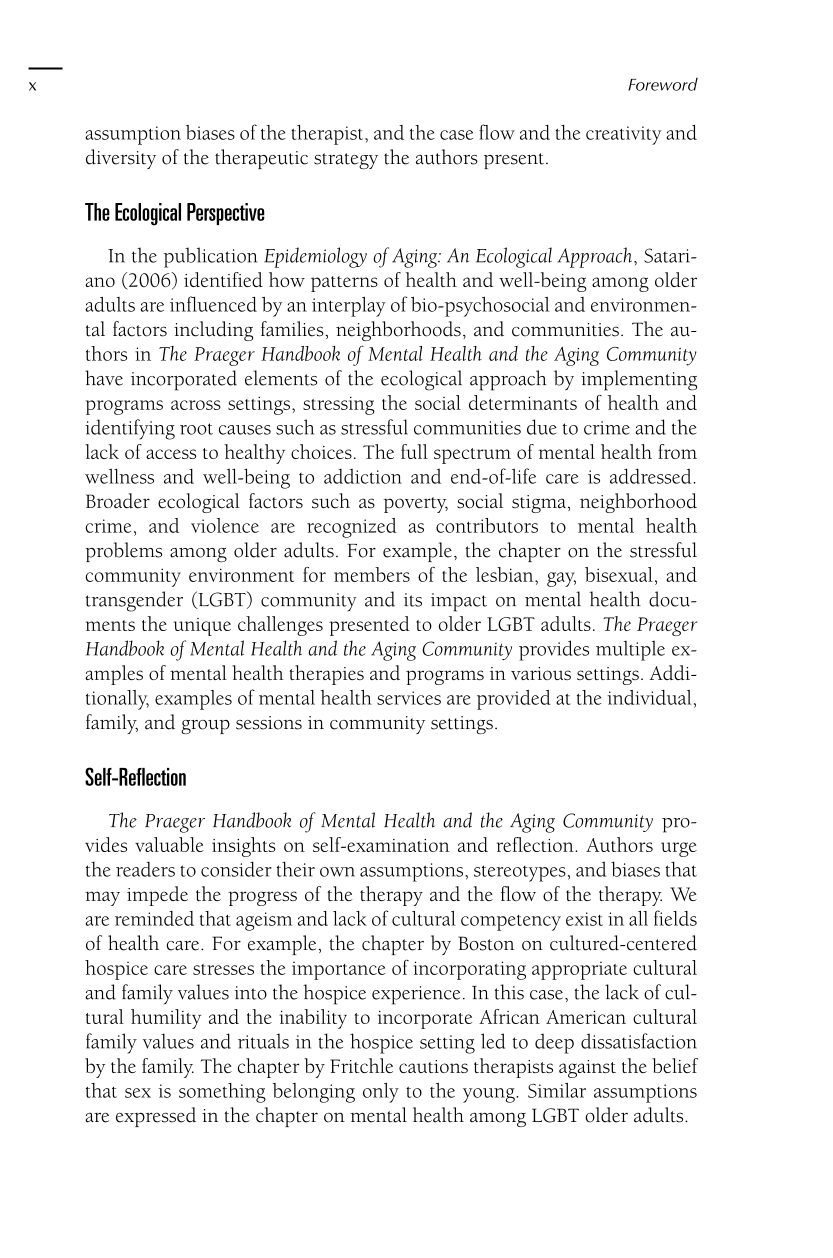x Foreword
assumption biases of the therapist, and the case flow and the creativity and
diversity of the therapeutic strategy the authors present.
The Ecological Perspective
In the publication Epidemiology of Aging: An Ecological Approach , Satari-
ano (2006) identified how patterns of health and well-being among older
adults are influenced by an interplay of bio-psychosocial and environmen-
tal factors including families, neighborhoods, and communities. The au-
thors in The Praeger Handbook of Mental Health and the Aging Community
have incorporated elements of the ecological approach by implementing
programs across settings, stressing the social determinants of health and
identifying root causes such as stressful communities due to crime and the
lack of access to healthy choices. The full spectrum of mental health from
wellness and well-being to addiction and end-of-life care is addressed.
Broader ecological factors such as poverty, social stigma, neighborhood
crime, and violence are recognized as contributors to mental health
problems among older adults. For example, the chapter on the stressful
community environment for members of the lesbian, gay, bisexual, and
transgender (LGBT) community and its impact on mental health docu-
ments the unique challenges presented to older LGBT adults. The Praeger
Handbook of Mental Health and the Aging Community provides multiple ex-
amples of mental health therapies and programs in various settings. Addi-
tionally, examples of mental health services are provided at the individual,
family, and group sessions in community settings.
Self-Reflection
The Praeger Handbook of Mental Health and the Aging Community pro-
vides valuable insights on self-examination and reflection. Authors urge
the readers to consider their own assumptions, stereotypes, and biases that
may impede the progress of the therapy and the flow of the therapy. We
are reminded that ageism and lack of cultural competency exist in all fields
of health care. For example, the chapter by Boston on cultured-centered
hospice care stresses the importance of incorporating appropriate cultural
and family values into the hospice experience. In this case, the lack of cul-
tural humility and the inability to incorporate African American cultural
family values and rituals in the hospice setting led to deep dissatisfaction
by the family. The chapter by Fritchle cautions therapists against the belief
that sex is something belonging only to the young. Similar assumptions
are expressed in the chapter on mental health among LGBT older adults.









































































































































































































































































































